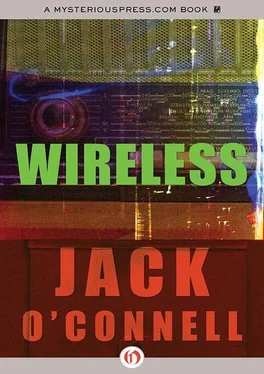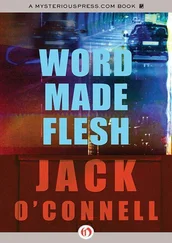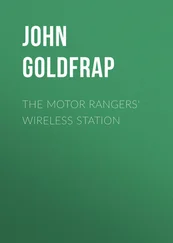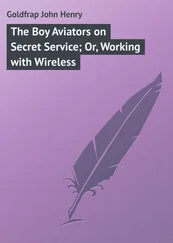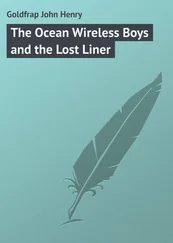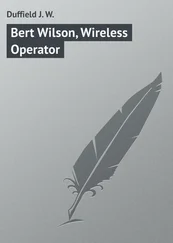Flynn runs out into the midst of the parade, knocking into several faux monks, sending their symbolic coffins to the street. The crowd starts to make a communal boo and a couple of the bigger monks throw a few punches Flynn’s way, but he absorbs them running, makes it to the far side of Rimbaud, and tries to break through the new wall of bodies. People poke and jab and spit on him, but he keeps ducking and moving and twisting his way deeper into the mob.
But there’s no sign of Ronnie.
He looks to his left and sees a small service alley blocked off by a blue metal garbage Dumpster. He heads for it, hoists himself up on top, and looks out over the waves of human skulls. She’s long gone by now.
He studies the parade for a few minutes, thinking this will tell him what to do, give him a clue toward a course of action. Instead, the sight just brings on more confusion. It’s as if the long line of bohemian marchers and raunchy floats and graphic novelty acts were a tribute, not to Fr. Andre Todorov, but to bedlam itself. As if the only way to truth, or even to the simple expression of loss, were through the maverick and gaudy display.
As the tail end of the parade — an authentic-looking confessional booth, all ablaze within a small orange and silver low-bed U-Haul trailer — swings around the corner onto Aragon Ave, an overamplified voice shrieks down at the crowd, “Are you ready for a kick in the ear?”
The communal attention of the street shifts back down Rimbaud and up to the roof of a renovated old church that’s now a club known as St. Anthony’s Temptation. Four young men are standing at the lip of a parapet that’s centered between two spires. They’re all wearing white dinner jackets over their bare chests and black bow ties around their throats. They’ve all got enormous boom-box radios strapped around their shoulders like guitars and behind them is an unbroken row of black amplifiers stacked a good ten feet high.
Flynn watches as they extend arms and join hands and, in unison, take a long, low bow as if their performance had just ended. Their boom boxes hang down and sway before the trunks of their bodies and Flynn thinks for a second they might be having trouble coming upright because of the weight of their equipment. But they rise in a practiced, graceful sequence and then the spokesman lifts a hand-held microphone to his lips and says, “We are Severed Artery and welcome to our free Open Channel Jam jam block party.”
Then one by one they lift a theatrical arm to their dangling radios and turn their knobs and the street is walloped with a blast of screeching feedback. The whole crowd brings their hands to their ears and a slew of people actually drop to their knees. Three Artery players look at each other with some degree of alarm, but the apparent leader of the group is sporting a huge smile, as if this were exactly the audience reaction he’d been aiming for. He raises his arms up, Bela Lugosi style, and his bandmates hesitantly follow suit. Then, again in unison, they drop their hands to their radios and attack the tuning knobs.
A bizarre and nauseating mix of unintelligible noise washes down over Rimbaud as the titanic amps howl this awful, deafening amalgam of competing sounds from up and down the band waves. There’s static and pop songs and the spoken voice, emergency broadcast tones, bebop horns, speed readers screaming car deals, a radio Mass, a radio swap meet, a high school football game, speed metal riffs, a Spanish speech with delayed translation, stock reports, Mozart’s Magic Flute , and much more static.
The group seems to be spinning their knobs in three-second intervals, one tuning randomly on the heels of the next, like some twisted camp song rounds. The volume is excruciating. And it seems to be increasing.
A wave of panic starts to break out. The mob in the street starts to disperse, but no one knows where to escape and bodies begin to collide and fall. Flynn spots a trio of skinheads trample over the back of a young girl who’s fallen. He jumps down from the Dumpster and tries to push his way toward her, but he gets knocked down himself. He takes a boot in the face and blood starts to flow from his upper lip. Another boot comes down on his hand, and fingers break. He heaves upward with his shoulder, finds an opening, gets to his feet, tucks the crushed hand under his opposite arm, and begins to run. He cuts through an alley, ends up on McJacob, and keeps moving, heading toward Bangkok Park. Away from the noise.
He runs till he’s on Grassman and he realizes the din has faded a bit, receded enough so he can stop and catch his breath. He sits down on the curb outside a small Oriental storefront. He takes his hand out and looks at the fingers, bent in unnatural directions and already swelling to the size of breakfast sausages. Blood is still flowing from his mouth and he reaches to a back pocket with his good hand, pulls free a handkerchief, and applies pressure to his lip.
His lungs are heaving and his ears are ringing a horrible, nonstop, low-toned gong. He wonders if there will be any lasting damage, if the eardrum itself has bruised or even ruptured. If he’ll be left trying to read lips and make hand gestures with his newly mangled fingers.
But on the heels of that concern, he thinks of Ronnie. And his heart gives a fresh double punch. Did she make it out all right?
And was the last thing she heard the sound of his miserable doubt?
V. U. Gomi Scrap and Salvage, up on Cornell Hill, is the biggest junkyard in the city. It might also be the oldest. It’s a family business, currently run by Vera Gomi, master scrapman and third-generation eccentric. Hannah has been here half a dozen times before, either haggling over parts for the Mustang or tagging along with the digging crew from the Medical Examiner’s Office. Gomi S&S used to be a favorite burial spot of the Pecci family. Don Gennaro utilized the yard as a geographic signature, a standard general warning, broadcast via the graphic Spy photos — pick and axe crew gagging, holding handkerchiefs to noses. The message was always the same and easy to understand: Do not welch when the vigorish comes due down San Remo Ave.
Hannah is sitting on the side of a doorless, overturned refrigerator, a mammoth old Frigidaire like the one she grew up with. She’s dressed in a charcoal cotton turtleneck, her black jeans, and an old navy P-coat she bought last year in a secondhand store. She’s got her department.38 out and she’s drawing a bead on various-sized rats darting in and out of piles of rusted bale wire, rushing over the black hulks of torched Chevys and Buicks. The hoods of the burned-out cars are littered with old wine bottles, probably one of Vern’s halfhearted collections. Every now and then a rat knocks a Yago sangría container to the ground. She’d like to let a round or two fly, see what kind of accuracy she can count on in this glare. But she doesn’t want to give the wrong impression to her date, the heir apparent to the newly founded Iguaran dynasty.
She closes an eye and sights down on a fat albino mother gnawing a corncob on top of a tubeless television set. She’s almost certain she could whack the rodent and she stays with it for a while, continuing to squint, following its small movements and readjusting her arms accordingly.
Then Nabo steps into her line of fire and stands frozen, not frightened, the picture of control and composure. His arms are down at his side and his posture is so erect he looks artificial, almost like one of these heavy metal appliances scattered around them. The kid is a Colombian Gary Cooper, only more threatening, more predatory, not necessarily just a protector. His huge brown eyes stare at Hannah, waiting for her to make a move, initiate contact. He’s dressed in jeans and a light leather blazer over a navy-blue T-shirt. Hannah would bet her car that he’s carrying at least two pieces under the coat, automatics, and probably extra clips in his pockets.
Читать дальше
